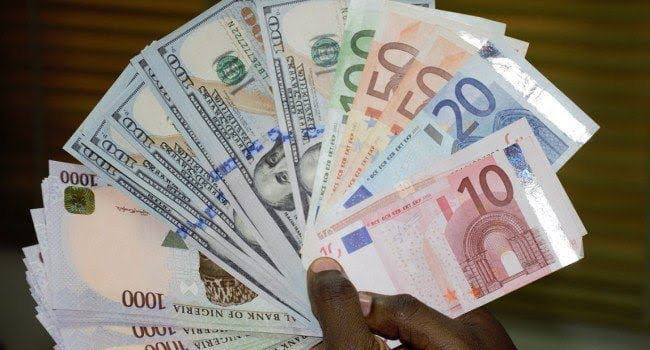
The Economic and Financial Crimes Commission (EFCC) on Friday, 29 July, 2022, raided the Wuse Zone 4 bureau de change hub of Abuja in the wake of currency speculation that has forced the naira to tumble to N710 against the dollar.
Government sources said the EFCC operatives were working on intelligence that some individuals were buying up all the dollars on the black market thereby causing an artificial scarcity of the greenback and a drop in the local currency.
An EFCC detective who wished to remain anonymous said, “Today, 29 July, we stormed Wuse Zone 4, Abuja, home to most bureau de change operators in Abuja in what was a covert operation to dislodge currency speculators who are alleged to be massively mopping up available foreign currencies.
“The anti- graft agency is working on intelligence that some forces with massive naira inflow have mobilised resources and, are busy buying up available foreign currencies especially the US Dollar, to either hoard or smuggle the same put of Nigeria.”
Jungle-Journalist.Com also learnt that operatives of the EFCC have also been spotted at major airports in the country, in what a source said is a coordinated nationwide operation that will be extended to all the major commercial cities such Kano, Lagos and Port Harcourt.
The Spokesman for the EFCC, Wilson Uwujaren, did not respond to calls on Friday.
This is not the first time that agencies of the Nigerian government would raid Wuse Zone 4 bureau de change hub.
In 2017, operatives of the Department of State Services were said to have raided the bureau de change hub when the dollar crossed N500.
The Central Bank of Nigeria had last year stopped selling dollars to BDCs, accusing them of terrorism financing and currency manipulation.
The CBN had also forced the shutdown of Aboki FX, a website that provides updates on the black market exchange rate in real time.
However, due to Nigeria’s dwindling foreign reserves, dropping oil remittances, a rise in demand for Forex ahead of the 2023 elections and a strengthening of the dollar, the country’s local currency has continued to dip, falling from N650 to N710 to the dollar on the parallel market within a space of one week while it has remained relatively stable at N420/$1 at the official market.
Most Nigerians, however, lack access to the official market value